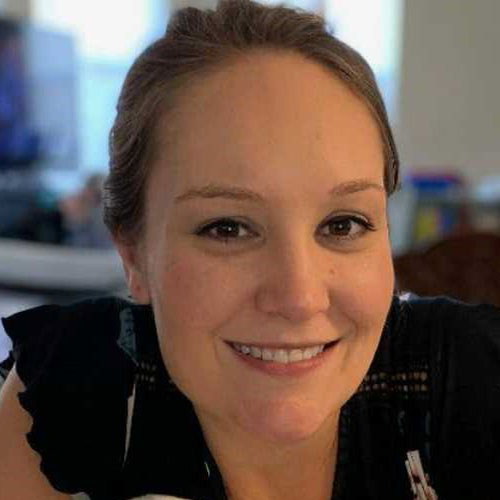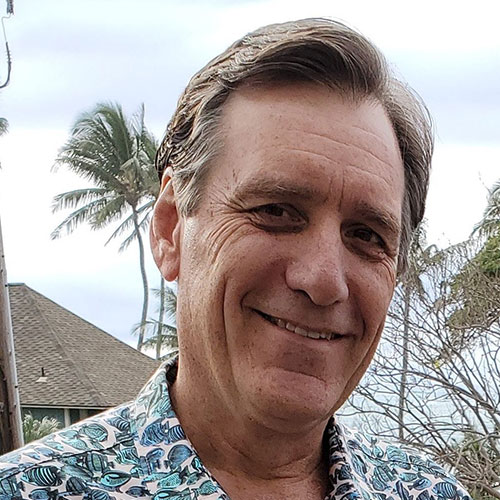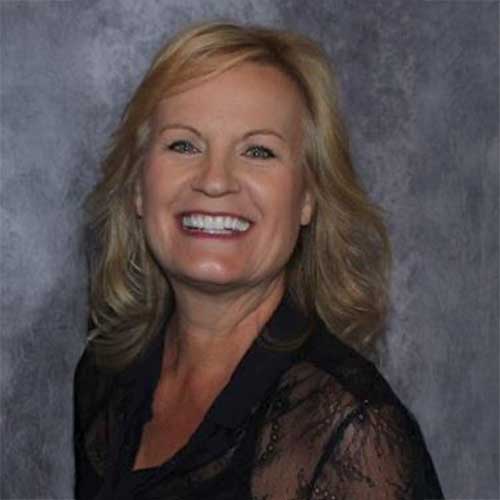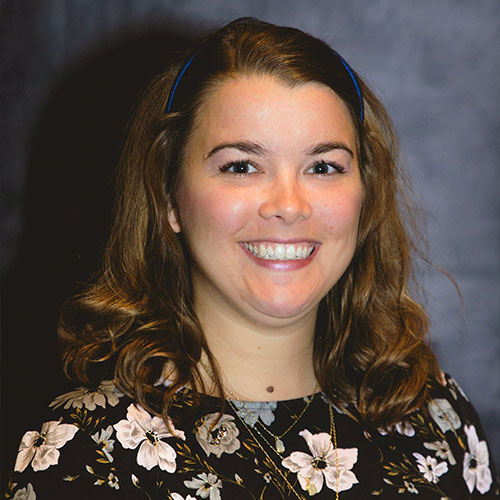About SilverSage
Learn more About Us
A Sage is a wise leader, experienced, insightful, intelligent, thoughtful, with understanding. Sage is also an herb known over the centuries for its medicinal and healing properties. Proverbs 16:31 states “the silver-haired head is a crown of glory… “The proverb denotes the clients we are advocates for.
SilverSage recognizes not only the healing component of the herb but the connotation associated with the wisdom that comes with experience and our specialized education enabling us to impart counsel to patient, family, and facility.
Kenneth L. Scott Jr. DO, CMD CEO of SilverSage Management Services
Dr. Kenneth L. Scott Jr. DO, CMD
CEO/Founder
Sharon Scott
Chief Operating Officer
Leanne Cesario
Director of Finance
Elisabeth Anderson
Special Projects Director
Lauren Cooley
Historian Consultant
Ron Hessel MBA
Financial Consultant
Testimonials
Our Success Stories
FAQ
Frequently Asked Questions

Why use SilverSage?
Difference from a Medical Director?

How are you Different?

Why have a full-time doctor in a nursing home?
Quality of Care and Education

Do you accept Medicaid?
What is the Cost?
Does SilverSage play a role in safe transitions?

How do you Educate Your Physicians?
How a SilverSage physician benefits a facility.
How do you Find Physicians for your Facility?
How does your presence impact patients and staff?
Does SilverSage educate staff and community?
How Does Your Daily Presence Impact Patient Care?

What can SilverSage do to help your Nursing Home Facility?
Blog Posts
See our Stories
Why Use SilverSage?
To start with, depending on what state your nursing home is in, you actually may have problems directly employing a doctor in your building due to Corporate Practice of Medicine laws. We don’t have that problem as much [because we are] a physician-owned company. In certain states we are better able to supply you a doctor than you are actually to hire one yourself. If that isn’t a problem for you in your state, I will say that part of the beauty of working with us is that physicians overall, even if they are geriatrics trained, don’t necessarily have altogether what they need to do to practice in the setting that is the nursing home. SilverSage Physician Services provides a lot of education to help doctors understand the practice setting that they are going to be in, which facilitates a better outcome for you with physician services in your building. Overall, you’ll probably be better off using us, both from the education standpoint and what we try to do to make it easy for a doctor to cooperate with what a nursing home needs and what patients need in that setting.
How do you Find Physicians?
The most important thing about finding a physician is finding somebody that will fit into your culture of your building. Having been in hundreds of buildings across the United States, I find that every culture is a little bit different based on the people that are leading in that facility. To start with we come to you and ask you, “Of all the doctors that are in this community that you already know, in your wildest dreams, who would you want to be the doctor?” Then we will often go after that doctor. I can tell you that most of the time, 80-90% of the time, either your first or second choice is the doctor that we can provide to you. We also interview those doctors to see if it’s actually a good fit for you because finding the right doctor for a building is about finding a doctor that has good communication skills, not just to talk to geriatric patients, but to integrate as part of the team in the building. It’s not hard for us to sum up a doctor by looking at their credentials and know if they have all the qualifications and the background for the job. What is more important and what we spend more time on is, what kind of a bedside manner does that doctor have and how good is that doctor at communicating, because that is what makes a difference for your patients, and your patient and family satisfaction.
How are you Different?
The way most doctors work, when they go to the office, the hospital or the nursing home is strictly a fee-for-service type of system. The more patients they see, the more money they make. Within reason given quality of care they’re trying to balance quality of care with how many patients they see in a given day. Our program is really based on trying to provide quality of care. Because there is a fee for the service that we render, its not strictly a fee-for-service situation. This allows our doctor the time necessary to not only give good quality of care, but to meet patients’ needs including talking to them about death and dying if necessary, their wishes, and helping them define what their wishes are, and end-of-life issues. But it also gives that doctor time to help the building out with systems and processes. For instance, if you look at the 5-star rating system right now, almost everything that goes into a 5-star rating has to do with how a doctor interacts with the building, what kind of orders that doctor writes, and how that doctor interacts with the team and the patients.In order for a doctor to do a good job on that, they have to have the time necessary to interact with the facility and not just the building. Our program allows them to have that time to address those needs. You’re 5-star rating can improve, your survey system can get better, Your systems improve. Patient and family satisfaction improves. And overall it ends up being a system that is not just a doctor running in to see all the patients as quickly as he or she can to get back to the office, but actually spending time in your building to improve the quality of care that is given.
What is the Cost?
There’s no doubt that our program costs some money. The question is, “What is the investment that you’re willing to make to have the quality of care that we will help bring to your facility?” As far as the actual cost goes for any building, I can tell you that what we do is, we come in and tour your building then we have a bunch of questions for you. What we try to do is figure out the real needs of your building are, and how do we address those needs. And then we come back with a proposal. I can guarantee you that when we come back with that proposal we will also show you in real dollars where your return on investment is. And so, yes it may cost some money up front; but I can guarantee you that you’re going to get that money back by the savings that we create for you, the efficiencies and the quality of care that you gain.
Difference from a Medical Director?
Under federal and state law there is actually specific requirements that a medical director has to perform. Most of those are actually administrative, medically administrative activities that the doctor has to be a part of. WE can cover those, and have our doctor be the medical director as well. What we do when we have a full-time doctor in a building, is so much beyond what a medical director does that they are really 2 separate contracts and 2 separate situations that we address. We are able to encompass all that in our program, under 2 contracts.
How Does Your Daily Presence Impact Patient Care?
For the past 6 years I’ve had the privilege of being able to fulfill that role of being an in-house physician in one facility. I would say in all aspects of care the quality has improved dramatically, the patients being first and foremost the ones that benefit. They see me rounding every day. They see me having my office in the building. We have all of our physicians in the facilities that they work in. Patients can come down to my office any time, knock on my door, ask questions about concerns that they have about their health. I can see them in their setting of going through physical therapy, occupational therapy, to see them in their activities and it gives me an additional viewpoint of their health, a person-centered viewpoint of their health. Everything from their daily interactions and eating in the dining room, I see them there as well. From that standpoint, being in the facility on a daily basis allows me to see a lot more areas of their life than just having somebody coming to your office and have a 15 minute visit. It gives me a much more comprehensive view of each of my patients.
I also get to see them recover from critical illnesses that they have gone through. That is such an encouragement from a physician’s side of things, to see my patients improve and be able to go home in most instances. And for those that end up staying at the facility, I get a chance to be a part of what their end of life decisions are, and to be a part of the communication that that takes with the family and the patient, to make sure that their wishes are adhered to during their last phases of life.
I’ve had many experiences where my being in the facility has benefitted the patient so much. Recently I’ve had a patient who suffered from a stroke. He’d been living in the facility for a couple of years, and ended up developing pneumonia. He had already made decisions not to be resuscitated if there were any sort of emergencies that were to happen. I played an active role in communicating with him and his family. They were able to come in from the mainland and actually be there for the process of him transitioning into comfort care. I was able to meet with his wife and daughter and to pray with them, and be more than a doctor. That’s exciting to be there for my patients in such a way that is more than I could have ever managed to. I never would have been able to do that had I not been a full-time physician in just one facility.
How does your presence impact patients and staff?
Not only the patients benefit from a doctor being in the building but also the rest of the health care team: the nurses, the therapists, the administrator, everyone who is a part of the team, the dieticians. The reason for that is the access to that physician in the building. They physician is able to sign orders quicker. They are able to deliver healthcare quicker and more efficiently. That ends up providing a higher quality of care overall. I can’t tell you how many times nurses have told me they don’t’ have to wait on the phone for a phone call back to hear from their doctor. I’m right there. They know that I’m going to be rounding that day. They know that I’m going to be going to their nurse’s stations. The therapists know where my office is too, so they can get those orders signed for whatever they need to help the healthcare improve. I think comprehensively it helps all aspects of care and all the different disciplines of the interdisciplinary team. Not only that, but we’re bringing it back to working in an environment where the physician is part of the facility and the nursing home team, and having the same goals and the same vision for what care needs to be provided in the facility. It helps getting to know that team at a higher level, and being involved with quality assurance, with behavioral management, with antipsychotic use, with antibiotic stewardship, with all those aspects of care that include so many disciplines. The physician is a piece to that, that contributes to and adds to the team, and really ends up benefitting the patients, the facility, and healthcare in general.
Why have a full-time doctor in a nursing home?
In today’s healthcare we’ve seen such a dramatic shift in where patients are taken care of and how they’re getting taken care of. We have a higher acuity of patients coming into the hospital; and those then filter down into the nursing home. Yesterday was a very stable patient coming into the nursing home just to get rehab. Today we have complicating issues of renal disease, of pulmonary disease, of heart disease that are making the treatment and monitoring of these patients much more complex and involve a physician to be there to evaluate these patients and make sure that none of their medical conditions are coming to the point where they need further treatments for them. We’re there to provide optimal care of these complex cases so they can get the therapy that they need and stabilize them so that they can eventually go home. With hospitals wanting to discharge their patients out into the community and into the nursing homes sooner these days, having a physician in the building is pivotal to allow those facilities the complex skillset that it takes to take care of these patients.
How do you educate your physicians?
The educational piece to SilverSage is something that I’m very passionate about. I’m excited to see how many physicians have an interest in post-acute and long-term care. Our vision and desire is to train more physicians to be competent in the nursing home setting. By providing monthly conference calls, by connecting with AMDA, our physician organization, and allowing them to go to conferences, and improve their skill set, to allow them to do more in the building and in the facility as medical directors and as in-house physicians, to be competent physicians who are there to improve the quality above-and-beyond, and looking forward providing that education to every doctor that comes in and making sure its consistent and that we develop a network of physicians that are all on the same page with improving quality by meeting regularly, by having webinars, and being able to communicate to each physician so they can provide care that’s going to be better than it was before.
Does SilverSage educate staff and community?
The educational piece to SilverSage is something that I’m very passionate about. I’m excited to see how many physicians have an interest in post-acute and long-term care. Our vision and desire is to train more physicians to be competent in the nursing home setting. By providing monthly conference calls, by connecting with AMDA, our physician organization, and allowing them to go to conferences, and improve their skill set, to allow them to do more in the building and in the facility as medical directors and as in-house physicians, to be competent physicians who are there to improve the quality above-and-beyond, and looking forward providing that education to every doctor that comes in and making sure its consistent and that we develop a network of physicians that are all on the same page with improving quality by meeting regularly, by having webinars, and being able to communicate to each physician so they can provide care that’s going to be better than it was before.
Does SilverSage play a role in safe transitions?
At SilverSage one of our goals is to improve communication with the hospitals that refer to us and with primary care physicians. Our physicians are pro-active in getting information from the hospital prior to our patients’ coming in, as well as, if they do need to go to the emergency room, communicating with the emergency rooms by providing the information that they will need to help make their decisions on the other side. The continuum of care is really completed by having a physician in the nursing home because it allows that communication piece to be optimized. With physician-to-physician communication, we’re able to know our patients better; we’re able to treat them better; and able to avoid unnecessary rehospitalizations.
What can SilverSage do to help your Nursing Home Facility?
At SilverSage one of our goals is to improve communication with the hospitals that refer to us and with primary care physicians. Our physicians are pro-active in getting information from the hospital prior to our patients’ coming in, as well as, if they do need to go to the emergency room, communicating with the emergency rooms by providing the information that they will need to help make their decisions on the other side. The continuum of care is really completed by having a physician in the nursing home because it allows that communication piece to be optimized. With physician-to-physician communication, we’re able to know our patients better; we’re able to treat them better; and able to avoid unnecessary rehospitalizations.
Quality of Care & Education
We review federal and state survey results, as well as the 5-star rating of your facility, in order to educate our doctor to help you achieve even higher quality of care standards.
Do you accept Medicaid?
Our doctors can take Medicaid as well as any other insurance that is admitted into your facility. Because we do the revenue cycle for our doctors, we check all the time with you as well as our doctors to ensure that we have credentialed our doctors for whatever programs are admitted into your facility in order to take care of those patients and bill for them appropriately.
How a SilverSage physician benefits a facility.
We’ve had quite a bit of experience working in many nursing homes throughout the nation. There are 2 instances that I think show the extent of the impact we can have in a facility.
The first one is really in areas of limited resources. We see a lot of facilities which have problems with recruiting physicians to come and see their patients. What SilverSage does is to provide a physician full time in the building to address that need. We have had facilities that just want us to provide a physician. Of course, we want to do a lot more than that; but in areas of limited resources we’re able to provide those facilities with physicians and provide that quality care.
The other instance is facilities that are really at the upper end of rehabilitation in what they are doing for healthcare. They are really pushing the envelope with being progressive and trying to do more in their facilities. In those instances, we are able to come alongside and provide physician oversight, physician involvement and take that facility to the next level, to allow them to provide that additional service to the healthcare system that they’re involved with.

Kenneth L. Scott Jr. DO, CMD
Meet our CEO
Dr. Scott, DO, CMD is the CEO of SilverSage Management Services. Kenneth L. Scott Jr. DO, CMD earned his doctorate degree in osteopathic medicine from the Kansas City University of Medicine and Biosciences. He also holds a Bachelor of Science degree in Microbiology from the University of British Columbia.
After completing a residency in Internal Medicine. Dr. Scott, DO, CMD spent the next 16 years working as a hospitalist. During those early years in the development of the hospitalist specialty Dr. Scott, DO, CMD helped to manage and eventually lead hospitalist programs. His experience in this industry led to calls for him to rebuild failing hospitalist programs and multiple stints serving on hospital boards including both for-profit and not-for-profit institutions.
Early on he also developed an interest in nursing home work and served as the Medical Director of nursing homes for seven years. Eventually, his combined experience as a nursing home medical director and leadership in the hospitalist specialty resulted in a call to serve as the Corporate Medical Director and eventually the Chief Medical Officer of Life Care Centers of America. During his time at Life Care he built an ancillary company of Life Care which directly employed over 100 doctors, Nurse Practitioners and Physician Assistants across 18 states to provide medical care and improve quality of care for Life Care’s nursing homes. This company, Life Care Physician Services, LLC continues to be a leader in the Post-Acute and Long-Term Care world in providing excellent direct patient care while dramatically reducing re-hospitalizations and improving outcomes especially on the Post-Acute side of the nursing home.
While still managing Life Care Physician Services, Dr. Scott, DO, CMD left Life Care Centers of America to follow his dream of forming his own company to provide the same services to other facilities that might wish to achieve the same quality outcomes. He currently serves as the CEO of SilverSage Management Services. His company provides physicians to the Post-Acute and Long-Term Care industry as well as consulting services to Nursing Homes and Assisted Living companies on improvement of quality of care and safe transitions.
Dr. Scott, DO, CMD has served as a member of the Program Planning Committee as well as the Foundation Board for the Society for Post-Acute and Long-Term Care Medicine. He also has active memberships in the Society of Hospital Medicine, and the American College of Physician Executives.

Leanne Cesario
Director of Finance
Brings over 30 years of experience in accounting and financial consulting to the SilverSage family. Along with her superior financial skills Leanne holds a master’s degree in spiritual psychology that helps her connect with the SilverSage mission on a profound level and makes her leadership an integral part of keeping SilverSage mission focused.

Elisabeth Anderson
Special Projects Director
Elisabeth, who often goes by Lis, joined SilverSage as a consultant in 2017. She brings with her a background in HR, immigration processing, recruitment, and people management. Lis transitioned to the operations specialist position in 2021 and is currently the director of special projects assisting with, patient billings, physician electronic medical record support, medical provider onboarding, and social media.








